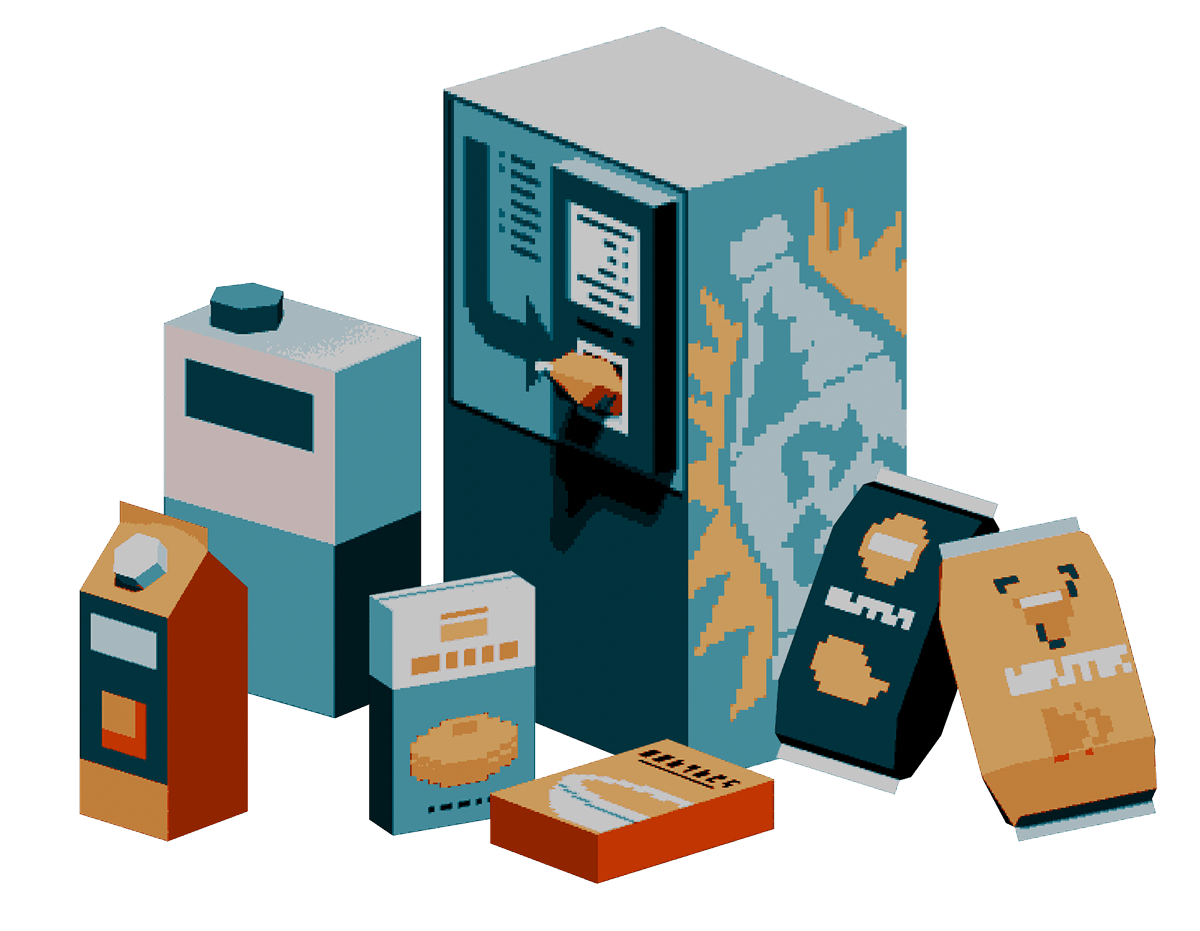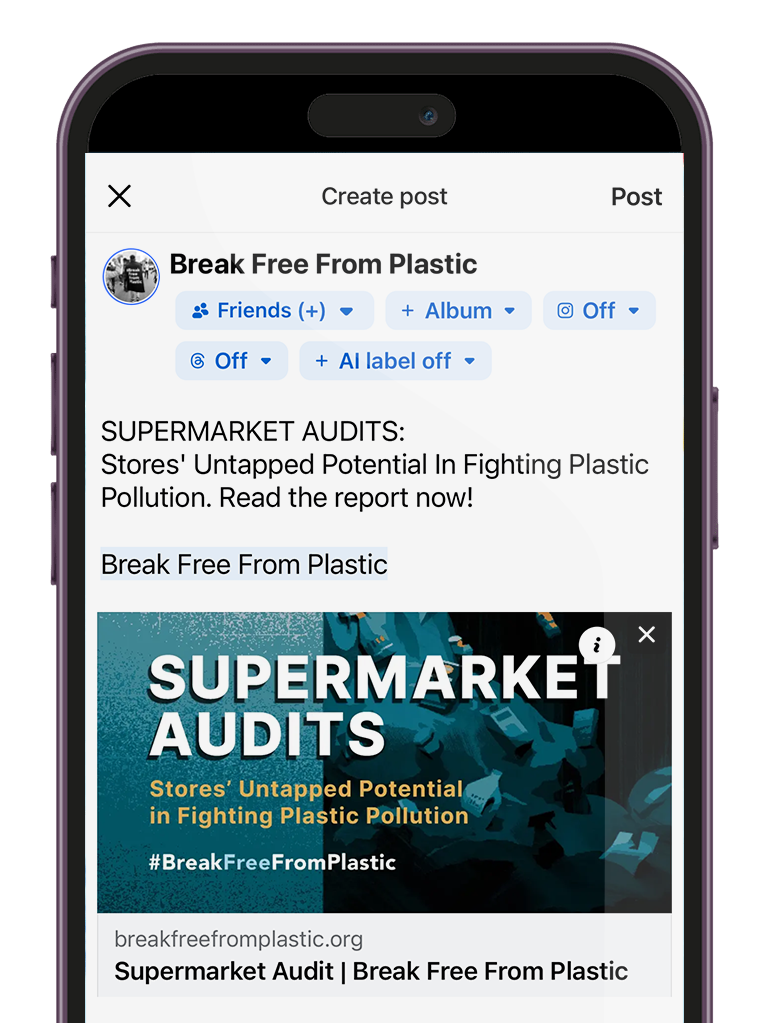Supermarkets play a critical role in the global plastics crisis. As one of the main places people buy everyday goods, they share responsibility with consumer companies for much of the single-use plastic that pollutes the environment. We have pressured the world's top plastic polluting companies like Coca-Cola and Unilever for years with the Break Free From Plastic Brand Audits, but supermarkets have so far escaped scrutiny.
This report offers a first global snapshot of how supermarkets are either facilitating or hindering efforts to reduce plastic use. Their business practices in store can have a huge impact on how much plastic is used and taken home by their customers. Supermarkets wield significant power when it comes to influencing consumer behavior and they could be using it to facilitate reuse and plastic reduction practices.

More than 36 organizations investigated almost 500 stores in 27 countries using questionnaires to assess in-store business practices.
Slide the arrows left or right to compare a current supermarket with the ideal one.





Legislation is currently the primary driver when it comes to plastic-free business practices in supermarkets. Companies shouldn’t wait to be forced to act by legislation. They should be leading the way in reuse models, packaging free shopping, and removing single use plastic from their stores.
Executive summary available in English, Spanish, French, German, and Bahasa Indonesia in the report
Spread the word about the business practices of supermarkets.
